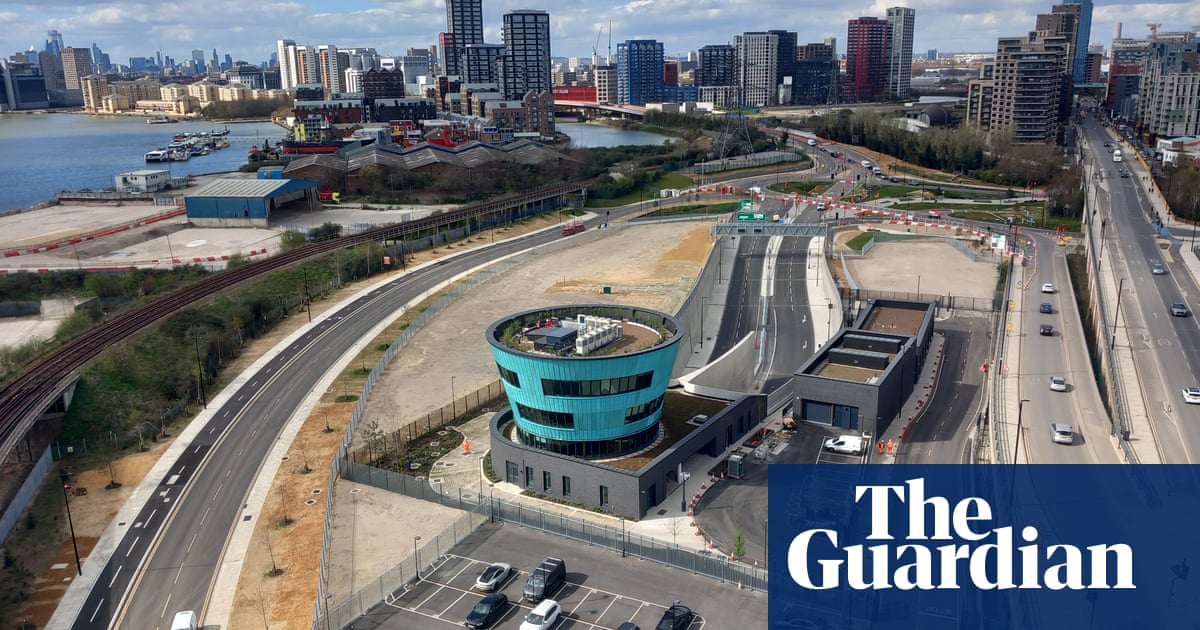Trade tariffs imposed on tiny Australian territories that are either uninhabited or claim to have no trading relationship with the US appear to have been calculated based on erroneous trade data.
The data relates, at least in part, to shipments mislabelled as coming from remote Norfolk Island, or Heard Island and McDonald Islands, instead of their correct countries of origin, the Guardian can reveal.
Among the erroneously-labelled shipments over the past five years from the island territories are shipments of aquarium systems, Timberland boots, wine and parts for a recycling plant.
According to an analysis of US import data and shipping records, multiple shipments of goods were classified as having originated from Norfolk Island or Heard and McDonald islands when neither the company address, nor the port of departure for the shipment, nor the destination port were located in those territories.
In some cases involving Norfolk Island, which is 1,600km north-east of Sydney and has a population of 2,188, the confusion appears to have resulted from the fact that the company’s address or port of departure is Norfolk, UK, or the destination is Norfolk, Virginia in the US, or a company’s registered address in New Hampshire (NH) has been listed instead as Norfolk Island (NI).
Norfolk Island was this week hit with a 29% tariff on its goods – 19 percentage points higher than the rest of Australia – despite claiming to have no export relationship with the US.
The decision has perplexed the Australian government, with Australia’s prime minister saying it was evidence “nowhere was safe” from Trump’s tariffs. The country’s trade minister, Don Farrell, said that it was “clearly a mistake”.
George Plant, the administrator of Norfolk Island, told the Guardian on Thursday: “There are no known exports from Norfolk Island to the United States.”
But according to US government data, presented by the Observatory of Economic Complexity, Norfolk Island exported US$655,000 (A$1.04m) worth of goods to the US in 2023, with its main export being US$413,000 (A$658,000) worth of leather footwear.
There is one large shoe shop on Norfolk Island, Franks Shoes. Its manager said in an email to the Guardian: “We are a shoe shop selling shoes to the tourists that visit the island and do not export shoes to the US or have any business with the US.”
The Guardian has identified two bills of lading – records of cargo shipments – for shipments each containing 3,714 black Timberland men’s ankle boots that set sail from South Riding port in the Bahamas for Miami, Florida, in December 2023. The shipments were worth a combined total of US$315,000 (A$498,000).
The bills of lading list “Norfolk Island” as the country of origin and the address of the shipper as Timberland, 200 Domain Drive, Stratham 03885-2575, Norfolk Island.
Timberland’s corporate office address is listed as 200 Domain Drive, Stratham, New Hampshire on its LinkedIn page.
A spokesperson for Timberland shoes said: “We are in a quiet period and have no comment.”
Other bills of lading that appear to have erroneously listed Norfolk Island as the country of origin include several from an aquarium and fountain company, OASE, which sent shipments from Norfolk in the UK to the US, and steel equipment sent from Novum Structures in Norfolk, UK, to the US.
Novum Structure’s address is listed on one bill of lading as 14 Hopper Way, Diss Business Park, Diss, Norfolk Island, instead of Norfolk in the UK, which is its EU headquarters, according to Novum’s website.
OASE and Novum were contacted for comment. The Guardian is not alleging that any of the companies are responsible for the errors in the paperwork.
The US Census Bureau, the agency responsible for collating US trade statistics, acknowledges in its guide to trade statistics that such reporting errors can occur and can “significantly impact detailed commodity statistics”.
The shipping databases that the Guardian used to check bill of lading information appear to rely on documents released by US customs under freedom of information requests, so it is not clear when in the process errors were made – during the exporting and shipping process or during the data collection process.
The errors in the shipping records appear to have flowed through to US census and trade data used as the basis for calculating tariffs.
Farrell told the ABC on Friday that the US’s 29% tariff imposed on Norfolk Island was “clearly a mistake” as Norfolk Island was part of Australia and so should be subject to the same tariff as the rest of the country. He said the Australian government would raise the issue with the US administration.
“It’s an indication that this was a rushed process,” he said. “The trade system that America has until yesterday been working on had been built-up since the second world war. In the space of four weeks, the American president has upended that process. So I think it was inevitable that mistakes would be made and particularly including Norfolk Island as [a] 29% tariff.”
Journalists and economists have figured out the method used by the Trump administration to calculate the tariffs placed on other countries and territories.
It is a simple formula which produces a tariff percentage based on the country’s trade deficit with the US in 2024. The Guardian has confirmed that this formula produces the 29% figure using US trade data for Norfolk Island.
Heard Island and McDonald Islands – an uninhabited group of islands covered in glaciers near Antarctica, which is also an “external territory” of Australia – was also named in the White House’s list of “countries” hit by tariffs, with a 10% tariff placed on it.
The territory does have a fishery but no buildings or human habitation. Despite this, according to export data from the World Bank, the US imported US$1.4m (A$2.23m) of products from Heard Island and McDonald Islands in 2022, nearly all of which was “machinery and electrical” imports.
The Guardian has identified multiple bills of lading that suggest exports originated from the remote islands but are largely steel or plastic imports from Europe to the US. The paperwork lists the shipper’s address as being in the Heard Island and McDonald Islands rather than Germany or Austria, however.
One bill of lading, from September 2024, relates to parts for a PET recycling plant, shipped from Starlinger Co in Vienna to Oakland California, which lists the address of Starlinger as being in “Vienna, Heard Island and McDonald Islands”. Starlinger Co was contacted for comment.
Jared Mondschein, director of research at the United States Studies Centre at the University of Sydney, said of the rushed development of the tariff policy: “It doesn’t surprise me that because of the lack of conventional interagency thinking on this, that there were some errors that were not caught.”
“If you input the wrong data in, then you’re going to get the wrong data out,” Mondschein said.
“And I think in this instance, if there are errors in the shipping records, which, you know, they’re ultimately humans and these things happen, then there’s going to be mistakes.”
The trade data issue may also be responsible for other remote areas being targeted with tariffs. The Arctic island of Jan Mayen and the Svalbard archipelago were hit with a 10% trade tariff – again despite local reporting suggesting few people lived there and there was very little in the way of exports.
Other territories appear to be in a similar situation, with bills of lading for shipments from Indian suppliers being mislabelled as coming from “British Indian Ocean Territory”, a remote external territory of the UK with few inhabitants.
Tokelau, a territory of New Zealand in the southern Pacific Ocean, was also targeted with tariffs, and again some shipments have been mislabelled as the suppliers originating from the island, such as a shipment of pergola parts from Turkey.
The White House was contacted for comment.

.png) 19 hours ago
4
19 hours ago
4













































